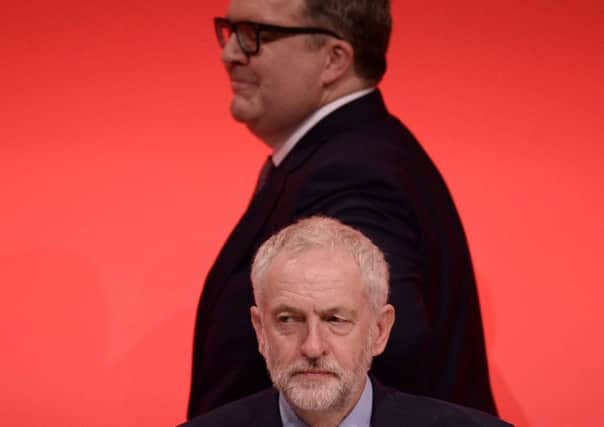Euan McColm: Labour fails to grasp the wonder of Woolies


Like countless others, I took Woolworths for granted. It was always there, in case I suddenly found I needed masking tape or sherbet-filled flying saucers.
And then – eight years ago – it stopped being there. Woolworths may have been a brand established at the start of the 20th century, it may have become part of the fabric of the UK, with stores on every high street, but in the end it was no longer fit for purpose. For decades Woolworths had filled a gap in the market but times change and we stopped using it; we shopped online or in retail parks for the things Woolies could provide and the company hit the rocks.
Advertisement
Hide AdAdvertisement
Hide AdThere was, when it was announced that Woolworths was to close its stores, a predictable outcry. How could this be allowed to happen? Where would the nation get its pic’n’mix, now?
But those distressed by the fall of Woolies were, in time, able to get on with their lives. It turned out that you could buy unhygienic cups of sweeties in supermarkets.
The Labour Party has rapidly become the Woolworths of politics; for years it has been a key feature of our political landscape, but customers are going elsewhere.
Since the election in 2015 of Jeremy Corbyn as leader of the opposition, Labour’s fortunes have tumbled. A party that wasn’t quite match-fit has become one that’s unable to get out of its chair.
Labour’s dunderheaded leader and his cabal of unreconstructed, old-school leftie cronies have hastened a decline that began some time before.
And yet some cling on to the party, hopeful that it can and will recover, believing that Labour might one day form a government again. These people might as well be standing outside a boarded up shop on the precinct, hoping that it is about to start selling sweets again.
In recent months, I’ve spent a lot of time talking about Labour with members of the party elected to serve in both the Scottish and Westminster parliaments. As has been well documented, the majority of the party’s elected members do not support Corbyn and yet – even as they watch him wring the last gasps of life out of Labour – they seem to think that, whenever he goes, there will remain a political party worthy of the name.
These politicians are in denial, clinging to an idea of a centre-left Labour Party that has died.
Last week, we saw the Labour Party at its most pitiful.
Advertisement
Hide AdAdvertisement
Hide AdA leaked recording of a meeting involving Jon Lansman of the pro-Corbyn Momentum organisation revealed that – should Corbyn crony Len McCluskey win the current battle for the leadership of the Unite union – the two organisations might affiliate. This made for bleak listening for moderate Labour politicians: a formal partnership between Momentum and Unite would surely make the unelectable left’s control of Labour unshakeable; those who dream of the end of Corbyn’s reign could expect any replacement to come from the same wing of the party.
In the aftermath of the revelations about Unite and Momentum, Labour’s deputy leader, Tom Watson, warned that a secret plot by supporters of Corbyn would destroy his party.
That ship has sailed and sunk.
Suggest to a moderate Labour politician (or, indeed, any number of commentators) that the time has come for a new party of the centre ground to appeal for the votes of those who had supported New Labour throughout the years of Tony Blair’s leadership and they can give you all sorts of reasons why this would be a disaster. They will point to the SDP, formed by frustrated Labour moderates in 1981 and forced, for the purposes of a sort of survival, into a merger with the Liberals – thus creating the Lib Dems – in 1988.
And, once they’ve rehearsed the failure of the SDP, they will tell you that the current voting system is such that any new party would be squeezed out. And, after that, they’ll smile and say that, anyway, Labour’s not dead. Like the Norwegian Blue parrot, it is just resting.
Now, it is certainly true that the SDP was not the roaring success its founders had hoped and it’s also correct that the first-past-the-post voting system means a new party would require sudden and sizeable support to make any kind of impact on Westminster. But these reasons are not strong enough for any Labour moderate to dismiss the idea of a new party.
The truth is that the world has changed since the SDP was formed. We simply cannot say that a new centrist party would suffer the same fate.
Politics is no longer, in any meaningful way, a battle between right and left. Now it is a battle between those who are open and those who are closed. It is a battle between looking in and looking out.
The result of the EU referendum was a victory for the closed, for the inward looking. Labour’s failure to stand up for those who are open has cemented its irrelevance in this new political era.
Advertisement
Hide AdAdvertisement
Hide AdThere is, across the UK, a constituency of voters who feel, very strongly indeed, that Brexit will be a disaster. Who now speaks for them?
For decades, there were constituencies where Labour could take victory for granted. But those days are long gone. The party’s on life support in Scotland after a series of drubbings at the hands of the SNP, and the party in England is losing support to the Tories, Ukip and even the Lib Dems.
It was once unthinkable that a great institution like Woolworths would go to the wall. And then it went to the wall.
The Labour Party is headed the same way. It’s time for moderate Labour politicians to come together under a new banner.